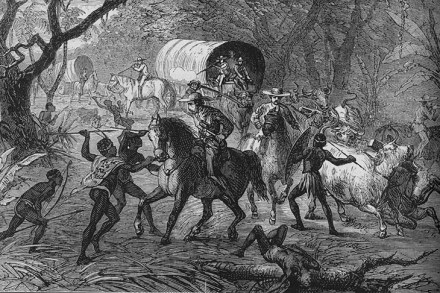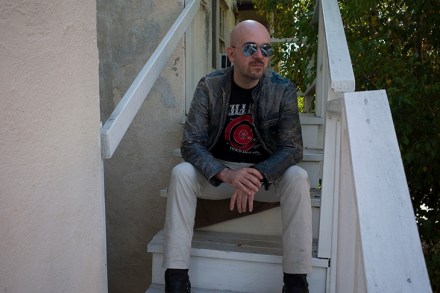King of a wild frontier
Red Dog is an ambitious hybrid of a book. It was published in South Africa to wide acclaim in 2014 and has been expertly translated by Michiel Heyns, who has retained the cadence and some of the vocabulary of the original Afrikaans — the mongrel tongue that evolved in the Dutch East India Company’s Cape colony. Willem Anker brings South Africa’s bloody birth to life through the story of Coenraad de Buys. The priapic founding father of a nation of bastards, he is a pillager and survivor, a rapist and husband, a colonist and outlaw, a rebel and hero. With his numerous wives and children, he is the gargantuan progenitor




















